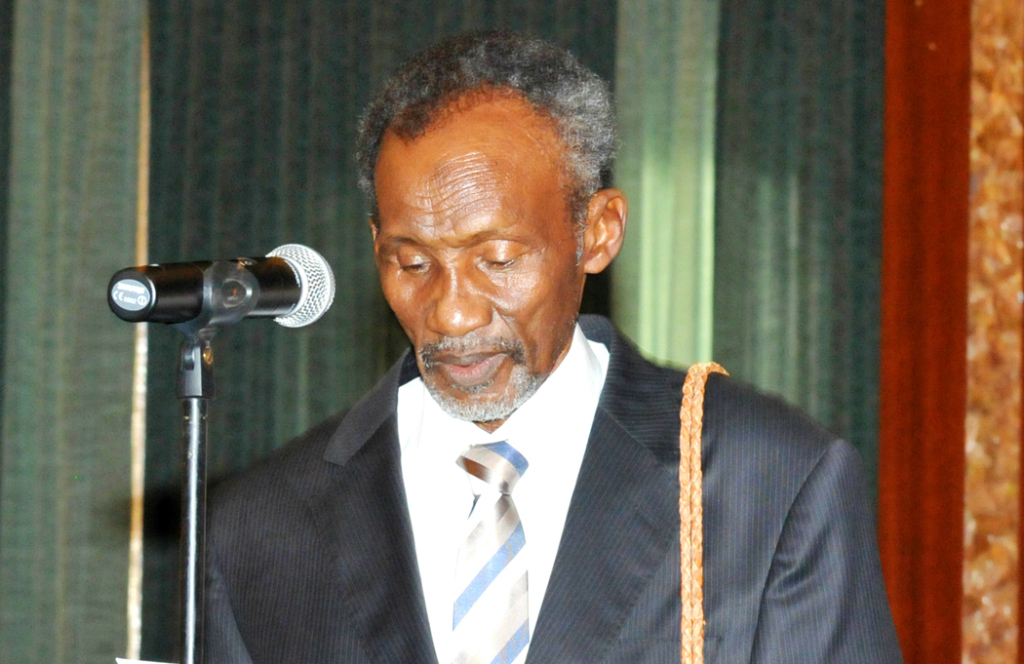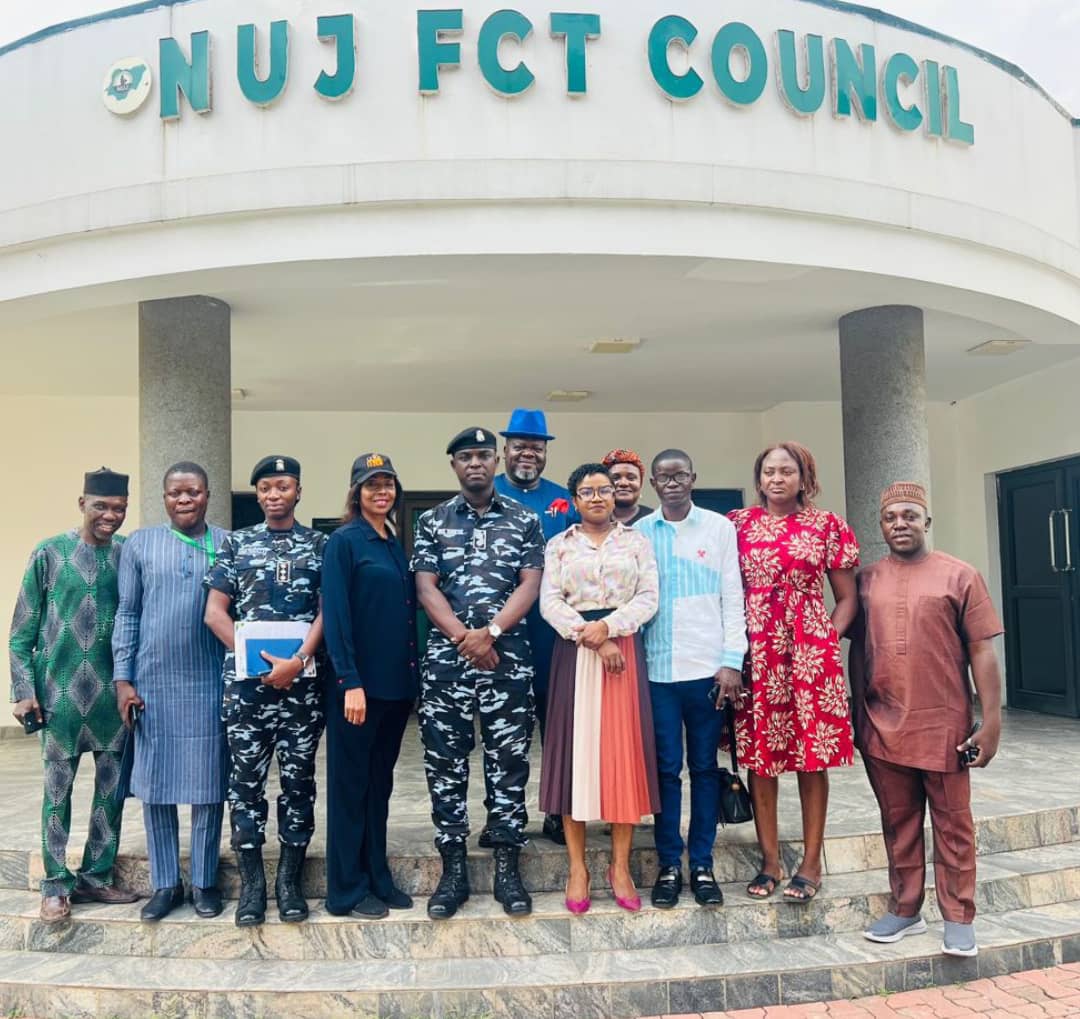NEWS
NJC Ready To Sanction Corrupt Judges — CJN

The Chief Justice of Nigeria, Justice Mahmud Mohammed, said on Monday that the National Judicial Council was prepared to sanction judges found culpable of corrupt practices.
The CJN, who doubles as the Chairman of NJC, said this in Abuja in his opening remarks at the 2016 refresher course for judicial officers on current trends in law and administration of justice.
The event, organised by the National Judicial Institute, was with the theme, ‘Promoting judicial performance through innovations and reforms’.
“It bears reminding that Your Lordships have sworn to adhere to your Oath of Office as contained in the 1999 Constitution and the Code of Conduct for Judicial Officers, 2003.
“Indeed, let me reiterate that where any judicial officer is found culpable of corrupt practice, you can be rest assured of the preparedness and resolve of the National Judicial Council to sanction such Judicial Officer appropriately,” the CJN said.
The CJN, who is also the Chairman of the Board of Governors of the NJI, called on judges at all levels to join hands with patriotic citizens in the campaign for “zero-tolerance for corrupt practices within our courts”.
Justice Mohammed said in an era when the judiciary had been “harshly” judged as being corrupt, judges must shun corruption and live above board in order to establish public confidence.
He said, “The negative effects of corruption have been experienced by every Nigerian in one way or the other.
“It also bears reminding that the Judiciary has been judged harshly and on the receiving end of allegations of corruption in its operations.
“At this crucial time in our nation’s history, we must show the red card to corruption, while joining hands as patriotic citizens to campaign for zero-tolerance for corrupt practices within our courts.
“We must not forget our noble duty as ministers in the temple of justice to uphold the rule of law impartially and without fear.
“In order to establish and sustain public confidence in the judicial process, judges must live above board, shun corruption, and avoid corrupt practices and misconduct.”
The CJN also lauded the new Administration of Criminal Justice Act 2015 and urged judges to be “stringent in applying the law strictly”.
He also called on judges to treat corruption cases with urgency in order to ensure that justice was done to all parties involved.
The CJN added, “I must similarly urge Your Lordships to treat cases related to economic crimes and corruption with the necessary urgency that the previously mentioned 2013 Practice Directions mandate us to apply.
“Judges must also be stringent in applying the law strictly in order to render justice in a satisfactory manner to all parties whether they are the state, the accused or the victim.”
He hailed the new law, particularly for its provisions which had put an end to interlocutory applications deployed by high profile suspects to stall their trial.
He said though the judiciary was being unjustly ciriticised for delay in corruption trials, it had, as far back as 2013, adopted a practice direction mandating that such cases should be heard on a daily basis.
He said, “My Lords, as you all are well aware, the judiciary has had to endure intense, largely unjustified and grossly uninformed criticisms regarding delay in the administration of justice.
“However, I am proud that the judiciary was well ahead of the curve when the 2013 Practice Directions on Serious Crimes were adopted as the Directions were aimed at reducing criminal trial delays.
“Nonetheless, the new Act strengthens our resolve as it provides that applications for stay of proceedings shall no longer be heard in respect of a criminal matter before the court.
“This unprecedented provision puts a stop to the delays occasioned by interlocutory applications to stay proceedings pending appeal on preliminary matters when the substantive issues are yet to be tried on the merits.
“Upon arraignment, the trial of the defendant shall proceed from day-to-day until the conclusion of the trial, while each party is entitled to only five adjournments not exceeding two weeks each. Where the trial is still not concluded, the interval for adjournments will be provisions will be fully utilised.”
PUNCH
NEWS
Force PRO Benjamin Hundeyin visits NUJ FCT, calls for media collaboration

The Force Public Relations Officer of the Nigeria Police Force, CSP Benjamin Hundeyin, has called for stronger collaboration between the media and the police in the interest of national security and public trust.
Hundeyin made this appeal during a visit to the Nigeria Union of Journalists (NUJ), Federal Capital Territory (FCT) Council.
He explained that his job as police spokesman would be difficult without strong support from the media.
“I cannot succeed in this role without the collaboration of the press,” he told the gathering.
Hundeyin used the occasion to call for balanced reportage stressing that the ripple effect of negative stories can damage public confidence in the police.
“Policing relies heavily on information,” he said. “Officers can’t be everywhere at once, which is why people’s tips and shared intelligence are so important. But when the public loses trust in us, those vital sources of information dry up, and that puts everyone at risk.”
On our own part we will continue to do everything humanly possible to protect lives and property “ he said
He added that insecurity in one part of the country can affect the whole nation. Hundeyin stressed that his message was not about controlling the press, but about encouraging balanced and responsible reporting.

“I am appealing to you today, help us build trust,” he said. “Let’s work together through open communication and partnership to make both the police and the country stronger.”
Hundeyin also promised to respond quickly and fairly to any issues journalists face while doing their work, especially in their interactions with police officers.
In response, NUJ FCT Chairman, Comrade Grace Ike welcomed Hundeyin’s visit and expressed readiness to work closely with him.
“On behalf of the NUJ FCT Council, I warmly welcome you,” she said. “We truly value this effort by the police to connect with the media directly. It shows your commitment to open dialogue and better understanding.”
She went on to say: “The NUJ FCT does not tolerate any form of harassment or intimidation of journalists. Press freedom is a right, not a privilege.
“As journalists, we recognise the key role the police play in keeping the peace and upholding the law. At the same time, the public needs timely, accurate, and honest information to have confidence in the police and other security agencies.
“That’s why our relationship must be built on trust and cooperation.
Together, we can stop the spread of misinformation and promote reporting that helps society move forward.”
Comrade Ike pledged the support of the NUJ FCT Council in working with the police for the good of the public.
“We are ready to partner with you,” she said. “Let’s make sure information flows freely and responsibly, so that both our institutions can serve the people better.”
Hundeyin was warmly received by the NUJ FCT Chairman, Ms Grace Ike, along with other council members including Secretary Comrade Jide Oyekunle, Assistant Secretary Ms Sharon Emephia, Auditor Rosemary Ukoko-Tega, Financial Secretary Henry Daniel Abimiku, and Ex-Officio 1, Ebriku John Friday.
NEWS
JUST-IN: Gov Fubara returns to Port Harcourt as Tinubu ends Emergency Rule

Rivers State Governor, Siminalayi Fubara, returned to the state on Friday, landing at the Port Harcourt International Airport, Omagwa, at about 11:55 a.m. to the cheers of his supporters who trooped out to welcome him.
His return comes hours after President Bola Tinubu lifted the emergency rule imposed on the state on March 18, following a political crisis that saw Fubara and his deputy, Ngozi Odu, suspended from office.
Despite his arrival, the governor had yet to resume at the Government House office as of Friday afternoon. On Thursday, the Rivers State House of Assembly reconvened, but hundreds of Fubara’s supporters who had gathered at the Government House in anticipation of his return waited in vain.
During the emergency rule, Tinubu appointed retired Admiral Ibok-Ete Ibas as sole administrator to oversee the state. In a farewell broadcast on Wednesday, Ibas handed over power and urged political actors in Rivers to embrace dialogue and mutual respect.
The crisis in the state began after Fubara fell out with his predecessor, Nyesom Wike, now Minister of the Federal Capital Territory, over control of Rivers’ political structure. The feud split the state assembly and escalated into violent confrontations.
In June, Tinubu convened a reconciliation meeting with Fubara, Wike, Assembly Speaker Martin Amaewhule, and other key stakeholders.
By July, Ibas inaugurated the Rivers State Independent Electoral Commission (RSIEC), led by Michael Odey, which conducted council elections across the state on August 30.
The All Progressives Congress (APC) won 20 local government areas, while the Peoples Democratic Party (PDP) secured three.
NEWS
Nigerian Born Int’l Journalist, Livinus Chibuike Victor, attempts to attain Interviewing Marathon of 72hours 30 Seconds

Journalists plays an essential role in promoting transparency, challenging power, and giving a voice to the voiceless. Despite increasing threats to press freedom across the world.
As the world reflects on the vital role journalists play in upholding democratic values, Livinus Chibuike Victor, Imo State born globally acclaimed journalist, proudly announce a historic Guinness World Record attempt for the longest interviewing marathon, with the Theme (NIGERIA OUR STRENGTH) scheduled to take place from 28th September to October 1st 2025, at Tangier Hotel, 34, Ekukinam street, Besides ABC Transport, Utako, Abuja.
The record attempt according to Victory, aims to highlight the enduring impact of journalism in a democratic society, a profession that continues to educate, empower, and hold those in power accountable. In an age where truth is often under siege, this initiative seeks to draw attention to the essential need for a free, ethical, and fearless press.
“Democracy is impossible without an informed public, and journalists are the ones who make that possible, “This attempt is not just about setting a new world record; it’s about celebrating truth, integrity, and the powerful role journalism plays in building and sustaining open societies.

The Guinness World Record attempt will feature a series of activities designed to engage the public, celebrate press freedom, and honor the sacrifices made by journalists around the world.
Members of the public, media professionals, and civic leaders are invited to witness and support the event as it unfolds over three inspiring days at the Tangier Hotel, Ekukinam Street, Utako,.Abuja, Nigeria.
About Livinus Chibuike Victor
Livinus Chibuike Victor is a Nigerian journalist known for his fearless reporting and advocacy for Press Freedom. He has worked tirelessly to promote transparency and accountability in society through his work.
-

 SPORTS20 hours ago
SPORTS20 hours agoBarcelona edge Newcastle 2-1 thanks to Rashford’s Second-Half magic
-

 NEWS12 hours ago
NEWS12 hours agoNigerian Born Int’l Journalist, Livinus Chibuike Victor, attempts to attain Interviewing Marathon of 72hours 30 Seconds
-

 NEWS12 hours ago
NEWS12 hours agoNSITF mourns Afriland Towers fire VICTIMS, calls for stronger workplace safety
-

 NEWS12 hours ago
NEWS12 hours agoSouth East NUJ hosts homecoming, awards Chris Isiguzo Lifetime Achievement Honour
-

 NEWS7 hours ago
NEWS7 hours agoJUST-IN: Gov Fubara returns to Port Harcourt as Tinubu ends Emergency Rule
-

 NEWS2 hours ago
NEWS2 hours agoForce PRO Benjamin Hundeyin visits NUJ FCT, calls for media collaboration
